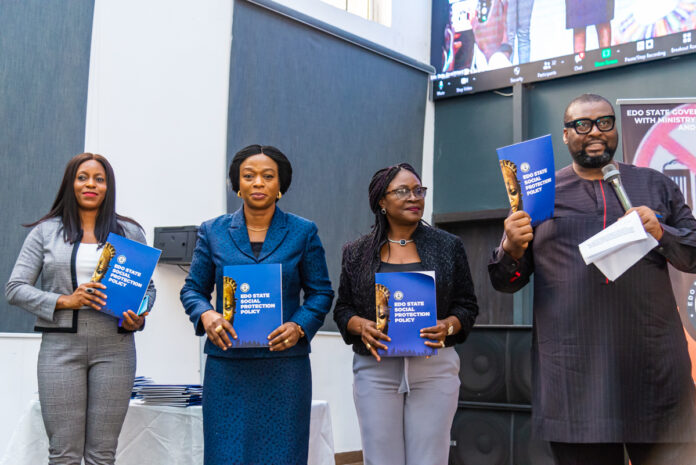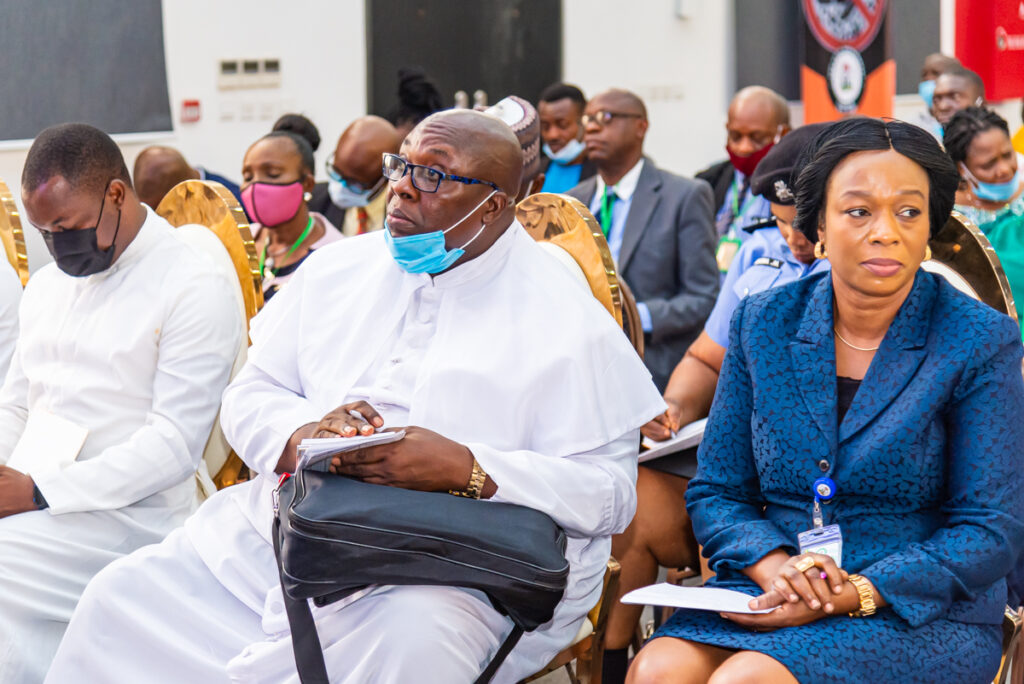
The Edo State Governor, Mr. Godwin Obaseki, on Thursday, unveiled the Edo State Social Protection Policy to checkmate social vices and protect vulnerable persons in the state.
Obaseki launched the policy at a town-hall meeting tagged, ‘Welfare Enhancement and Sustainable Development in Edo State,’ held at the Government House, Benin City.
Stakeholders at the town-hall meeting were drawn from the judiciary, Civil Society Organisations (CSOs), security agencies, government Ministries, Departments and Agencies (MDAs), as well as religious, traditional and political leaders, among others.

The governor, represented by the Commissioner for Social Development and Gender issues Hon. Mrs. Maria Edeko, said the town-hall meeting is to deliberate on policies, programmes and initiatives embarked upon by his administration to engender social development in Edo State.
He noted, “As government, we understand the enormous task of protecting the lives and property of our people, and we count on the active support of all stakeholders to deliver on our mandate.

“Edo State is blessed. Our people continue to champion innovation and push the boundaries of what is possible in terms of human welfare, both in Nigeria and across the globe, but we are not oblivious of contrasting stories of drug abuse, child labour, begging, Sexual and Gender-Based Violence, human trafficking, and other challenges faced by vulnerable persons in society. The increased incidence of cybercrime and the near-total breakdown of our value system are also worrisome and unnerving.

“The remedies we are deploying to deal with the problems of social dislocations are multi-pronged, including efforts to improve education at all levels; embark on a multilateral approach for skills development focused on leveraging Information Communication Technology (ICT); strengthen rehabilitation services; improve access to quality and affordable healthcare, and build formidable food systems.”
“This policy is built on five major pillars to include Social Assistance, Social Care, Social Insurance, Labour Market Intervention and Traditional Family and Community Support,” Obaseki added.


On his part, Commissioner for Youths and Humanitarian Affairs, Hon. Chris Nehikhare said the policy, among other things, will address monitoring poverty which involves the inability to cater for basic needs such as food, clothing, shelter, access to basic services, societal inclusion and livelihood support.


Also, the Chairman, Nigerian Bar Association (NBA), Benin Branch, Barr. Pius Oiwoh, blamed religious organizations and security agencies for aiding and abetting cybercrime, adding, “Aside religious leaders, security agencies also are not helping the issue as they take their cut and free these boys.”
Meanwhile, the Chief Imam of Benin Central Mosque, Alhaji Abdul-fatai Enabulele commended the state government for the town-hall meeting, charging for political will to implement the recommendations from the discussions.
The Archbishop of Benin City who was represented by Rev. Fr. Benedict Onwugbenu decried the rising number of street children in the state, pledging to work with the state government to address the menace.

